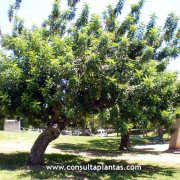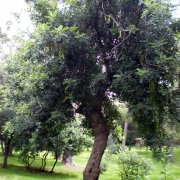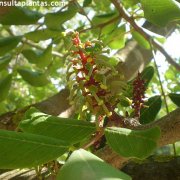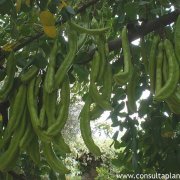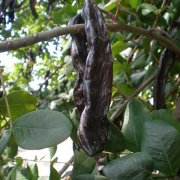Care of the tree Ceratonia siliqua or Carob |
|
The genus Ceratonia, family Fabaceae, includes 2 species of trees native to the Mediterranean region, Arabia and Somalia. The species are: Ceratonia siliqua and Ceratonia oreothauma. Common names: Locust bean, St. John's bread, Carob. This species is native to the Mediterranean region and the Middle East. They are evergreen trees with a wide crown and slow growth that reach 10 meters (32.8 feet) in height. The leaves are alternate, coriaceous and intense green on the upper side and glaucous on the underside. The flowers are greenish and not very decorative; They bloom after 7 years of life. The fruits are large pods with edible seeds. Locust bean is used as isolated specimens, as a shade tree and in public parks. It's ideal for Mediterranean coastal gardens. The fruits are used in dietetic foods and for feeding livestock. Ceratonia siliqua prefers full sun exposure and a hot, dry climate. It resists frost down to -7 ºC (19.4 ºF). Carob can grow in any type of well-drained soil, be it poor, sandy or stony. Locust bean is a drought-resistant tree that needs moderate watering until the substrate has completely dried. Fertilize with a little compost in the fall. St. John's bread can be lightly pruned in late winter to maintain a compact crown. Ceratonia siliqua is a plant resistant to the usual pests and diseases. Carob is propagated from spring sown seeds but it is a slow process. |
Images of the tree Ceratonia siliqua or Carob |
Find plants
Ceratonia siliqua or Carob | Care and Growing
© 2026 FavThemes
